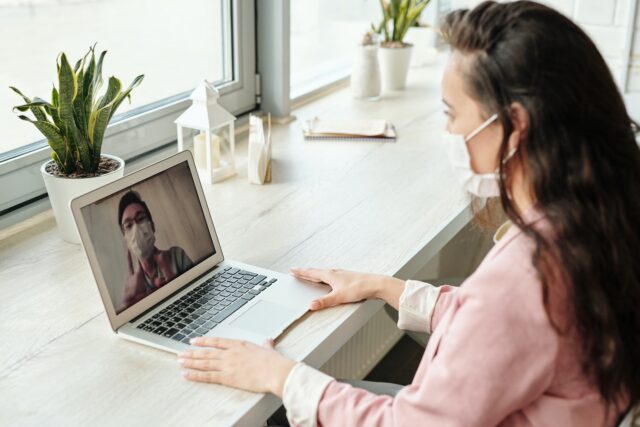Employers up and down the country are planning to welcome back employees to the workplace, and they must bring in strict COVID-safe plans as lockdown measures ease.
But British workers should confirm with their employer the steps that are being taken to make it safe and compliant to return to work.
All UK businesses who ask their staff members to return to work have been informed that they need to undertake a risk assessment and put in place various measures to protect their staff from contracting the virus.
Employees need to feel safe, and depending on the specific industry, certain unions have claimed that employees can even refuse to go back to the office if precautions aren’t taken, employees who are not returning to work can access small loans from CashFlex to support them during the pandemic.
Health and safety experts at CE Safety have made it easier for Brits to understand what their employers should be doing to comply with new safety rules.
A spokesperson for CE Safety says: “There are countless sensible measures to take when it comes to a safe return to work.
“The Coronavirus guidelines and measures are fast-paced, so all employers and employees need to follow the latest developments. As it stands, if Brits can work from home, then they should continue to do so.
“But this could change by August. Retail, hospitality, service and leisure industries are reopening from 4th July, it’s important to look at what employees need to know ahead of a return to the ‘new normal’.
“It’s worth mentioning that Brits should not return to work if they have been advised by the Government to shield. This will apply only to those in receipt of a letter, who are in the extremely vulnerable category.”
Here is a need-to-know checklist when it comes to returning to work.
Has the employer carried out a COVID-19 risk assessment?
Sounds simple, but before reopening the office, employers should ensure the safety of the workplace by carrying out a risk assessment. This might result in reorganising the office layout to give employees more space between work stations and/or install sneeze guards between spaces. A phased return might also be an option to employers.
Check employer’s cleaning, handwashing and hygiene procedures
Employers should encourage staff to wash hands regularly, and provide hand sanitiser around the workplace as well as the washrooms. There also needs to be a schedule that allows frequent cleaning and disinfecting of surfaces and objects that are touched regularly.
Clear use of toilets may sound too particular, but employers need to outline cleaning guidance for the toilets, as well as providing adequate hand drying facilities, either paper towels or hand dryers.
Ask the employer to clarify working from home stance
Employers have been advised by the UK government to take all reasonable steps to help people work from home.
Has there been internal discussing home working arrangements? Do employees have the correct equipment to allow effective working from home such as remote access work systems?
Employees who have family members that are at greater risk from COVID-19 will understandably be concerned about returning to work. Hence the need for employers to consider employees working work from home.
For employee physical and mental wellbeing, this is an important step for employers to help look after their staff. Mental health issues that can arise from periods of isolation, and employers need to allow the best possible working conditions for their staff.
What is there in place to ensure social distancing?
Where possible, social distance between colleagues should be maintained. Employers need to put up signs to remind workers and visitors of social distance guidance. Workstations should not be shared. Floor tape is a cost-effective way to visualise social distancing guidelines.
Employers may need to look at their processes too, and perhaps switch to visitors by appointment only, or do meetings via video service platform such as Zoom, or Google Hangouts.
What to do if British workers aren’t happy?
If you have raised concerns or requested clarification with your employer, but you don’t feel they have been addressed, you can consider whether to contact the Health and Safety Executive (HSE) about your concerns. They are the Government body with responsibility for safety in the workplace and can take enforcement action against employers who are lacking.




